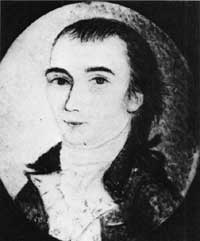James Smith was born in Ireland around 1719. The date is unknown since he kept it a secret. He was an immigrant to the 13 original colonies when he landed in Cheshire County, Pennsylvania, from Ireland at the age of 12. His father was a successful farmer, which allowed James to be educated by a local church minister.

Here, he was given a solid classical education that laid the foundation for future success. He later studied law in Lancaster, Pennsylvania, where his brother practiced, and at 26, he was admitted to the Pennsylvania Bar and set up an office in Cumberland County.
At the time, this was considered a frontier and, unfortunately, did not lend him much business. After about 5 years, he left Cumberland County and set up a practice at York.
Smith would become a political leader of Pennsylvania in the 1760s and attended the provincial assembly in 1774, where he offered a paper he had written called "Essay on the Constitutional Power of Great Britain over the Colonies in America."
In the essay, he offered a boycott of British goods and a General Congress of the Colonies as measures in defense of colonial rights.
Later that year, he organized a volunteer militia company in York, which elected him Captain. His company later grew to be a battalion, at which point he deferred leadership to younger men.
He was elected to the provincial convention in Philadelphia in 1775, the state constitutional convention in 1776, and was elected to the Continental Congress the same year.
He would serve in Congress for about 2 years and provided his office for the Congress that was meeting there for the Board of War during the American Revolution.
James Smith retired from the Continental Congress in 1777 and served in a few public offices after one term in the State Assembly and a few months as a judge of the state High Court of Appeals.
In 1782, he was appointed Brigadier General of the Pennsylvania militia. He was reelected to Congress in 1785 but declined to attend due to advancing age.
Unfortunately, a fire destroyed his home and, with it, his papers, so little is known about this influential member of Congress and avid patriot. He died in 1806 on July 11, just 7 days after the celebration of the writing of the Declaration of Independence, which he signed.
